“Hun, does Airbnb provide refunds?”
This was my question to Michelle as we entered the 13th day of the 2022 strike led by some of Ecuador’s indigenous groups.
A quick check on the Ecuador 911 site to see what roads are closed only deepened our anxiety. The beach holiday that we’ve been so dearly looking forward to was looking increasingly unlikely. “Sorry kids, I don’t think we can visit the beach this year.” Their faces shattered. Even 9 month-old Billy seems to be disappointed – or perhaps that’s just us projecting.
Like many others in Ecuador, our daily life has been affected by the ongoing strike. But as tempting as it is to continue to look inward at how the strike affects us, we’re genuinely trying to empathize with the striking indigenous groups instead.
After all, if our biggest complaint is that we have to go without our (relatively) expensive beach holiday for one year, then perhaps our entitlement feeds into the bigger issue at play here; class conflict.
That isn’t to say this is an easy exercise. As I write this our neighborhood is being segregated. Not only have the main roads been cut off, but the smaller roads too that only serve to disrupt a very small population from accessing their daily needs. No driving to get food (whatever is left) or to make our way to stock up on expensive “Super” gas for the car (the only type of gas left – which is also running thin). It’s hard to see how the indigenous blocking these roads send a message to President Lasso.
It’s these types of ancillary actions that have many residents turning against the strike. Hurting your fellow neighbors is not sitting well with our neighborhood. Our group chat is lit up with lots of anger directed squarely at those blocking the roads and a confrontation is looking likely for later today.
But, how did we get here? We had a similar strike in 2019, so it’s not like we haven’t seen this brewing for a while. I’m hoping the remainder of this article can shed some light on some of the fundamental reasons why some indigenous and other groups are striking.
What exactly do the indigenous strikers want?
On the surface, this seems relatively straightforward as CONAIE, the main indigenous organization leading the strike, has delivered a 10 point plan to President Lasso. The full version is here, with a condensed, machine-translated version below:
1. Reduction and no more increase in fuel prices
Freeze diesel at USD 1.50 and extra gasoline and ecopaís at USD 2.10, repeal decrees 1158, 1183, 1054, and enter into the process of targeting the sectors that need subsidies: farmers, peasants, transporters, fishermen….
2. Economic Relief
Economic relief for more than 4 million families with a moratorium of at least one year and renegotiation of debts with reduction of interest rates in the financial system (public, private and cooperative banks). No to the seizure of assets such as houses, land and vehicles for non-payment.
3. Fair prices for farm products
Including milk, rice, bananas, onions, fertilizers, potatoes, corn, tomatoes and more; no to the collection of royalties on flowers. So that millions of peasants, small and medium producers can have a guaranteed livelihood and continue producing.
4. Employment and labor rights
Policies and public investment to stop the precariousness of labor and ensure the sustainability of the popular economy. Demand payment of debts to the IESS.
5. No mining
Moratorium on the expansion of the extractive mining/oil frontier, audit and comprehensive reparation for socio-environmental impacts. For the protection of territories, water sources and fragile ecosystems. Repeal of Decrees 95 and 151.
6. Respect for the 21 collective rights
Intercultural Bilingual Education, indigenous justice, free, prior and informed consultation, organization and self-determination of indigenous peoples.
7. No more privatization
Stop the privatization of strategic sectors, patrimony of Ecuadorians (Banco del Pacífico, hydroelectric plants, IESS, CNT, highways, health, among others).
8. Price caps & control
Price control policies and speculation in the market of basic necessities, made by intermediaries and price abuse in industrialized products in supermarket chains.
9. Health and education
Urgent budget in the face of hospital shortages due to lack of medicines and personnel. Guarantee access of youth to higher education and improvement of infrastructure in schools, colleges and universities.
10. Increased security
Security, protection and generation of effective public policies to stop the wave of violence, hired killings, delinquency, drug trafficking, kidnapping and organized crime that keeps Ecuador in anxiety.
Lasso did attempt to address some of these points, but it hasn’t been enough to appease CONAIE and their supporters.
“The 10 point plan is exactly what they are demanding, nothing less. There is not much room for negotiation, some of the points are general and can be discussed, but others are direct. Lasso´s offer does not meet all the points.”
This was the response from Rumiñahui Duchicela when I asked him for his opinion on this topic. Many of you most likely know Rumi as the owner of the popular expat cafe, Café de Ñucallacta located on Hermano Miguel.
Rumi was kind enough to share some of his views on this sensitive topic. But, we need to be very clear here. These are his views, and he in no way represents CONAIE. CONAIE has a strict communication policy and Rumi’s comments do not form part of it.
Why strike now? We’re just coming out of COVID…
Ecuador’s economy has taken a beating. The 2019 “Paro” or strike, followed by COVID and now this current strike. It’s hit after hit that doesn’t allow Ecuador’s economy to stabilize and grow. So, why would CONAIE choose now to strike?
Rumi’s opinion: “CONAIE has gone to Lasso twice before, June 2021 and October 2021. They were brushed off on both occasions. Instead of dialogue, Lasso tried to divide Pachakutik from CONAIE and engineered alliances in the Assembly.
June has been chosen as it commemorates the first strike in 1990 which was specifically mobilized to take place during Inti Raymi.”
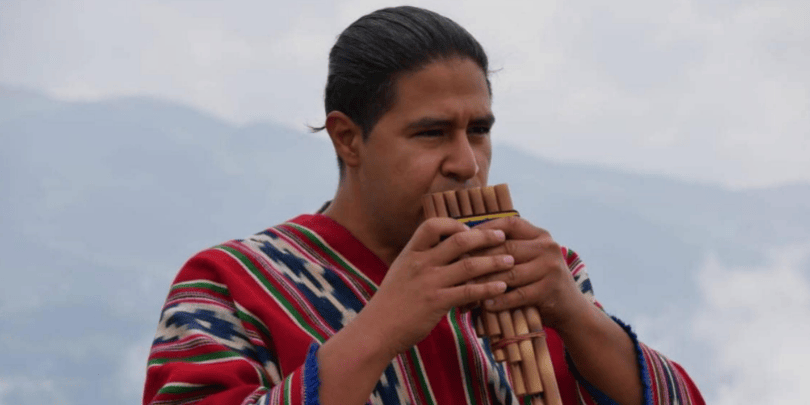
What is likely to happen if the indigenous demands are not met?
Of course, there is no crystal ball and with so much emotion flying around, it’s difficult for anyone to really know. Rumi’s response to the most likely outcome if demands are not met:
This is an indefinite strike, there is not much room for concession. A big reason why the strike continues is that Lasso is saying he is willing to dialogue, but continues to use force on demonstrations and roadblocks including the Estado de Excepcion in 5 provinces. For the people on the street, these are two contradictory statements.
Rumi went on to provide some Cuenca-specific insights:
There are a lot of people without work and facing inflated prices for basic necessities that they now cannot afford. They are really stuck between a rock and a hard place. Cuenca does not feel that pressure as much because of the large immigration to the US we experienced last year. This relieved unemployment pressure and generated revenue for the city from remittances.
Root causes of the strike?
This is a loaded, complex issue that has its roots with the Spanish conquistadores. Rumi elaborates:
“Indigenous communities have always been marginalized in Ecuador (inherited from the colonial caste system, both social and economic). Due to the tax/rape culture of hacenderos, there is a strong distrust of non-natives in these communities, including mestizos from the city.
CONAIE was formed in 1986 to give one voice to their demands, as previously it was much easier to manipulate individual communities. Since this time there has been a long tradition of strikes, all for specific reasons and policies, but demanding a better standard of living for all poor people, not just indigenous.
Many indigenous communities remain poor because they are overwhelmingly agrarian, unlike in the US and Europe, agriculture in Ecuador is not subsidized and I would agree that there is a need for technology and mechanization at the farm level, however, due to crippling loan interest rates and lack of access to capital this is not an option for these communities.”
Why does Leónidas Iza have so much influence over indigenous communities?
Leónidas Iza is at the center of the strike. Rumi explains how he fits into CONAIE:
“CONAIE in reality is an umbrella organization for a large number of base associations throughout native and mestizo communities. All these associations are CONAIE and are not CONAIE at the same time (if this makes sense). Many other leaders have tried to make political decisions with only their association’s support, claiming it is a unilateral decision of CONAIE.
Iza was raised in the organization (his father was a historic base leader) and has followed protocol. Iza´s influence comes from being the flagbearer and voice for all the bases. Before the strike, he visited every base leader to ensure he had their full support. In reality, he lets others talk, listens and makes decisions based on a general vote. He is a very diplomatic and soft-spoken leader. It is for this reason that even if Iza is arrested the strike will continue.”
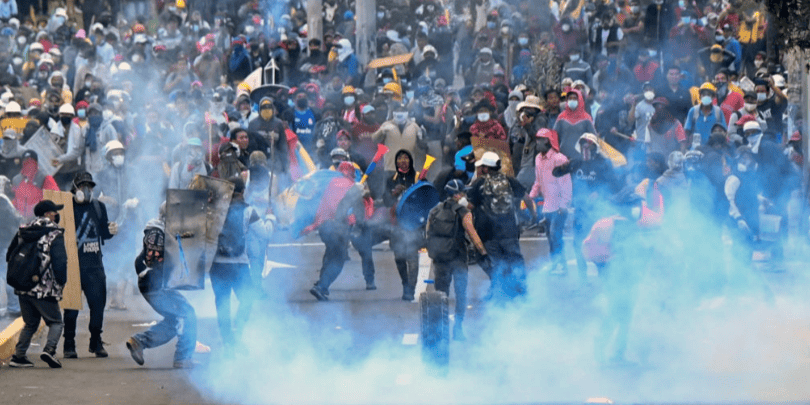
Is it possible that Leónidas Iza has his own interests ahead of those who have trusted him with the leadership? How can we know?
To me, this is one of the most difficult issues to really understand. There’s a lot of conjecture about indigenous groups being easily manipulated by their leaders. Given Ecuador’s long history of corruption, it’s easy to see how some people are quick to suggest that the influence Leónidas Iza wields can lead him down the path of caring about his own outcomes at the expense of those he represents.
Rumi’s take on Leónidas Iza:
“I am not a member of CONAIE, nor am I allowed to speak for the organization. However, I was fortunate to attend the general assembly in which the strike was called. Iza waited for every leader to speak (it took the entire day). He did not speak except for transitioning leaders and calling for a couple of breaks. It was a unanimous decision. Everyone has personal interests, but as I mentioned he does not break CONAIE protocol and would not put his interests above that of the organization.”
As an outsider that doesn’t know Leónidas Iza, it’s difficult to just take him at his word. The problem is that he’s a political figure and like many politicians, getting to the bottom of their real motivations can be very difficult and a healthy dose of skepticism is generally a good thing. But, how do non-CONAIE members get past this? I don’t have the answer.
Are Indigenous groups following CONAIE for the right reasons or are they acting out of fear of reprisals?
There were also numerous reports during the 2019 Paro that some indigenous groups taking part in the strike were only doing so out of fear that they would be punished by CONAIE if they did not form part of the mobilization. I also asked Rumi about this:
Native culture is very different from Western culture; the family and community are above or at the same level as individual interests (parallel to Asian cultures). I cannot know how each community mobilizes its base, however, there is a sense of moral obligation to support. All of my native friends support the strike, but not all are actively protesting. For those that are on the street, there is a sense of native pride and community in the strike as they joyfully join the caravans to Quito.
You have to also understand that the people are desperate. There is no work for many, lousy work for few, and not much money to buy basic needs. There are 2 reasons why the whole country is not up in arms:
1. CONAIE is not allowing Correa supporters to join the strike (many of the poor on the coast)
2. People are trying to save up money to go illegally to the US.
How are the indigenous leaders trying to stop the violence?
As the death toll from the strike climbs (currently at 4), we’re sitting at a crossroad with increased violence a very real possibility. Parts of Quito resemble war zones complete with trenches. Both parties have an obligation to minimize the violence, but are they doing enough?
“In mobilizations like this the adrenaline runs, both on the police/military side and protester side. A strike is not the first thing summoned, it’s the last, for this very reason. However, Lasso’s government has continued to minimize CONAIE by trying to break its power base through political alliances.”
CONAIE has made numerous calls for protestors to proceed in a non-violent manner. But, it only takes images & videos of a few rogue supporters or just opportunistic criminals to potentially swing the tide of public opinion and this is where CONAIE’s lack of control over its supporters is brought into the spotlight.
For example, in my neighborhood, there was a group of 5 – 10 intoxicated people that decided to block one of the roads with their tractor. They were letting people through only if they paid them a fee. This action has almost single-handedly turned the tide of opinion in our neighborhood against the strikers. Do these people belong to CONAIE? Who knows – probably not. But, the damage has been done. Our neighborhood is now mostly anti-strike with peace marches scheduled daily until this paro stops. I’m hoping we don’t have a more serious confrontation.
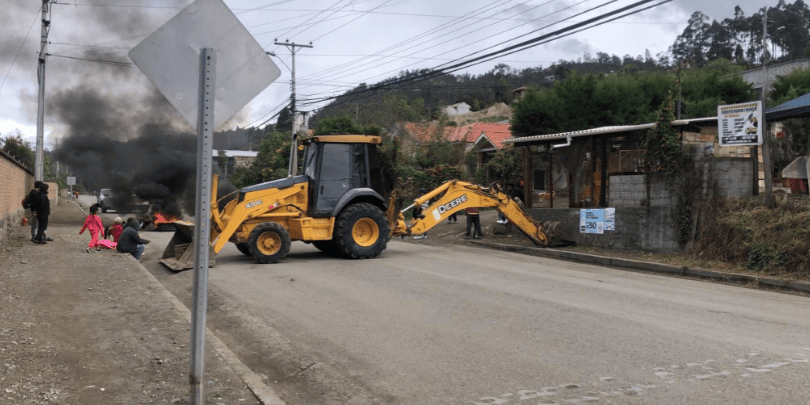
This is exactly the type of ‘us vs them’ mentality that Rumi warns about:
Because this strike is led by the indigenous community it’s easy for many Ecuadorians, out of frustration, to classify them versus us. There is a spike of racist commentary and because the great majority of us are mixed, they may not see their comments as racist.
I suggest calling out the Ecuadorian friends that you made and let them know that in the indigenous mind they are fighting for all of Ecuador, not just themselves. That and to please be patient, this too shall pass.
Response to those affected by the Paro?
Everyone living in Cuenca (and perhaps Ecuador) has been affected by this in some way. For some, it’s a minor inconvenience like postponing a holiday. For others, it’s completely debilitating because they can’t work. With a massive workforce that lives day to day via informal work, many people are being really stretched as this strike continues.
Again, I turned to Rumi for some feedback on this:
Strikes are the last alternative. Please put yourselves in their apargatas (shoes) and live without a few commodities until a decision is made. Emergencies, such as ambulances and basic necessities are sacred even in the strike and if you see that they are not being allowed through, please contact your local community leader or let the press know. These should be absolute life or death emergencies.
It’s frustrating, I understand, and we are setting ourselves back economically. However, as Ecuadorians, we are only as strong as our most vulnerable. Have some empathy and patience. Lasso has cut so many public jobs, all these unemployed people are not our problem until they decide to be our problem. That’s why socialist programs exist even in capitalist countries like the US.
My plea to the expat community is to respect the paro, the roadblocks, the marches. I know it is a great inconvenience, but please, just cancel or reschedule your trips. Just as in the pandemic, do Zoom calls if you can. There are private flights to get between Cuenca and Guayaquil. They are a bit more expensive ($150 I think). People are frustrated that they are not being heard and some will make rash decisions, while others unscrupulous will take advantage of the situation.
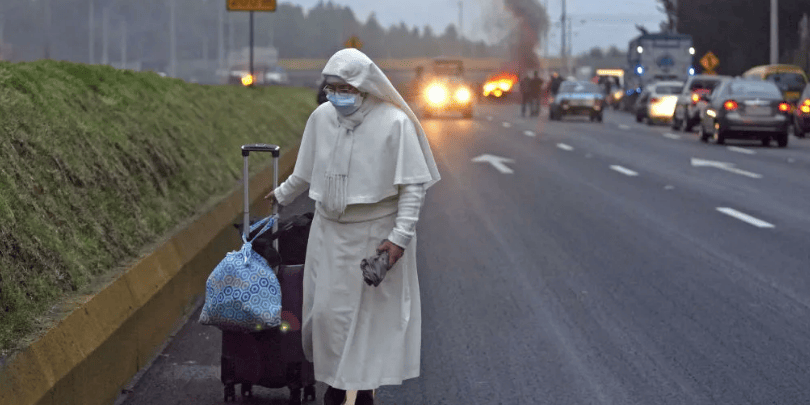
Do the protestors care about the economic disruption they are causing?
The paro costs the Ecuadorian economy millions of dollars lost each day due. This is too hard a hurdle for some detractors to swallow and I wanted to get Rumi’s take on this too:
What does that even mean to a family whose cost of living is $700 and whose income is only $425? The government is asking for solidarity to make sure the economy makes its millions, yet doesn’t want to address the immediate need of price inflation, loan sharking, lack of medicines, lack of funding for higher education, etc.
Lasso is right-wing, he wants to cut public spending. But the country is coming out of a recession when public spending is most needed.
There is no easy answer, I understand that, but as a father I can’t pay my quota to a bank and then go home to my children and tell them, “Sorry there is no money for food today.” I have to knock on every neighbor’s door and ask for bread. Lasso is thinking like a banker and that is making us a third-world country again.
The beauty of Ecuador was our strong middle class, without this buffer people will either turn to crime (i.e. spike in insecurity and narco killings) or will leave the country (Ecuadorians are now the no. 1 South Americans to immigrate illegally to the US). I personally am not looking to overthrow Lasso, however, he needs to rethink his public policies yesterday.
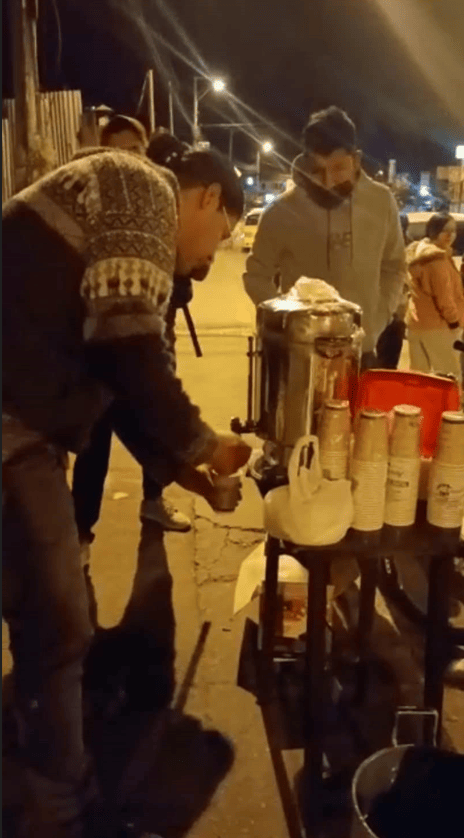
Are expats welcome on the front line of the strike?
As more deaths accumulate, things are getting more and more tense. If you absolutely must show up, bring some water bottles, milk (for tear gas) or some packaged goods. However, my recommendation would be to just demonstrate your solidarity via social media and donate to authorized organizations. I think the two universities in Quito are accepting and I’m including a link to another organization where you can donate below.
Here in Cuenca, the students are doing activities under the FEUE organization and it’s relatively safe to join.
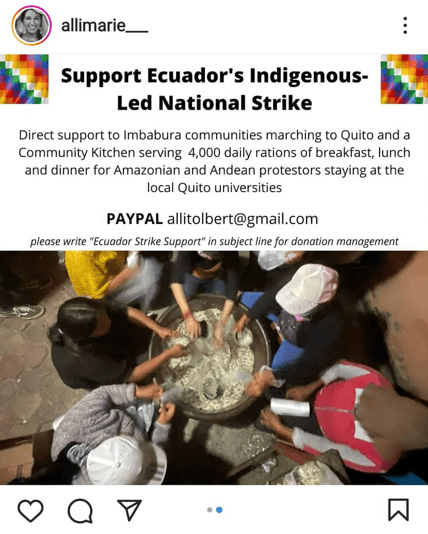
How to donate
- Use Paypal: [email protected]
- Description: Include “Ecuador Strike Support” so they know who the donation is for.
Will Lasso lose the Presidency?
As of writing, the latest significant development is the possibility of the Ecuadorian government losing faith in President Lasso and using Art 130 of the Constitution to remove him from office. Art 130.2 of the Constitution states:
“The National Assembly may remove the President of the Republic due to a serious political crisis and internal commotion.”
Supporters of former President Correa have been quick to jump on this and there is now the possibility of a vote occurring which may result in the current Vice President being promoted to President. They will need 92 votes in the Assembly to remove the current President.
Is CONAIE really just trying to overthrow Lasso?
Leónidas Iza released the below video to address concerns that CONAIE’s real motivation is to overthrow the current government in the pursuit of a regime change.
One of the main messages from the video is reiterating the importance of reaching a dialogue to discuss CONAIE’s 10 point plan. He also asked the police to minimize the use of force on CONAIE protestors.
Rumi sheds some light on this:
“There are now many saying that Leónidas Iza wants to overthrow President Lasso. This information is being spread by the Correa political block who are taking advantage of the situation for their own political gain.
The informative sent by Iza is clear that CONAIE is still only asking for the 10 points and for the police to ease up on the violence.
What CONAIE really needs is time for their people to talk and assemble. They usually do this at the Casa de la Cultura, but their access to this was denied for the first 10 days. They were eventually given access but then it was taken away again.“
The opportunistic Correa supporters have made it clear they do want Lasso moved on from the Presidency. One of the biggest issues faced by CONAIE is the infiltrators that are trying to change the conversation away from the 10 point plan toward removing Lasso.
What can expats do to help the plight of the indigenous in a respectful manner?
Please don’t rush to join the front line if you have no idea what you’re doing. And, chances are if you’re reading this beginner article about the paro, then you don’t. So, stay at home and engage via social media.
But, if you do want to help, then Rumi has provided the following suggestion:
One of the main goals of CONAIE is to include their culture into Ecuadorian mainstream culture. These initiatives include:
- Respecting Ecuador as a plurinational country
- Respecting their form of justice (justicia indigena)
- Including their languages in the school system
- Respecting the water ecosystem (anti-mining), and of course
- Create a better standard of living for all poor people in Ecuador.
If expats want to work with programs or people that follow these guidelines, this will definitely make an impact.

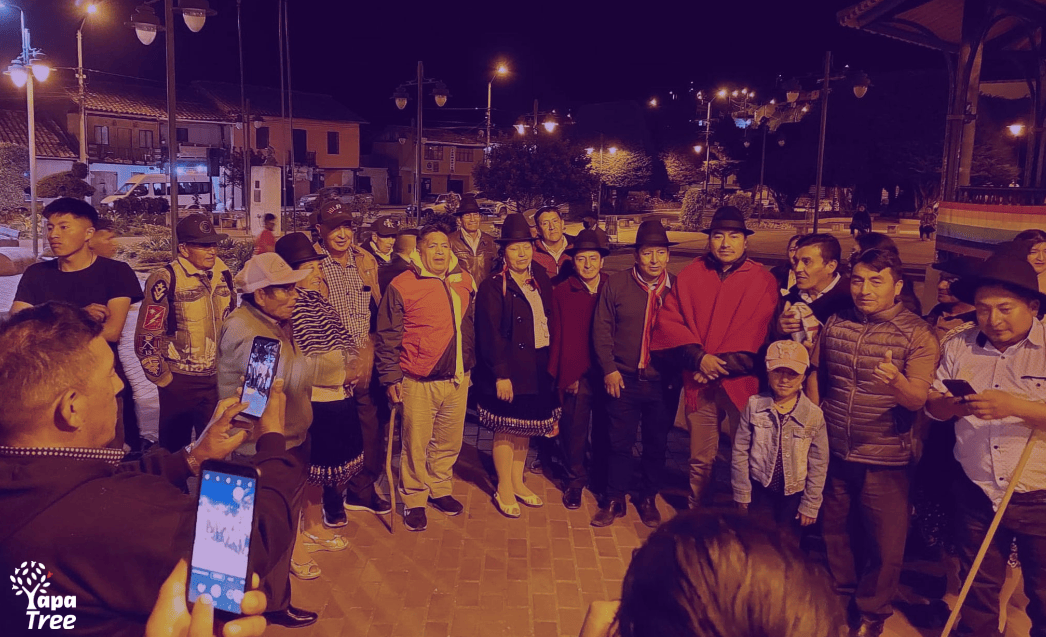




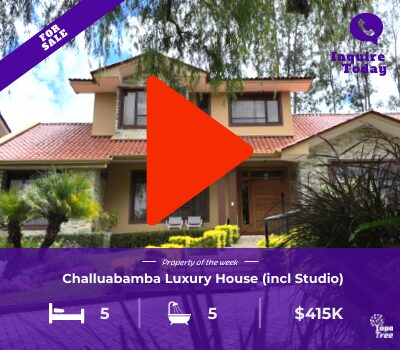

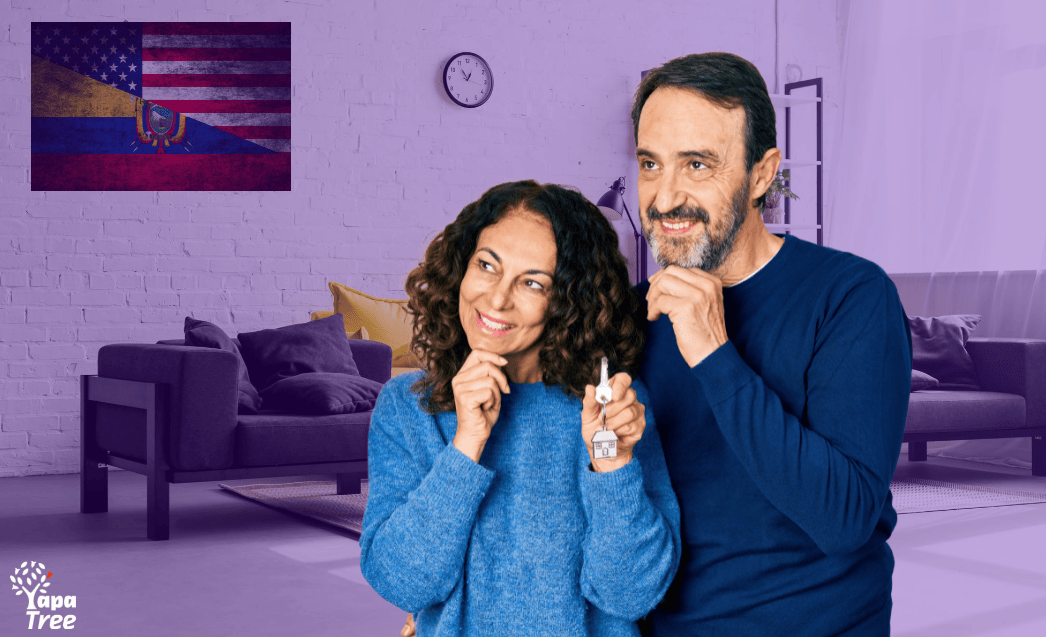

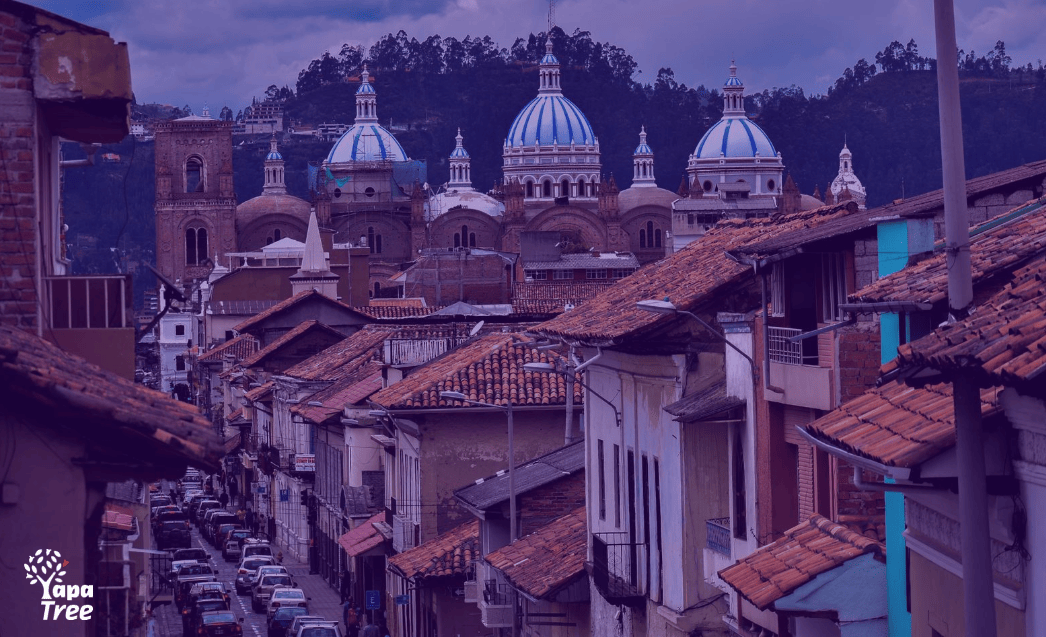
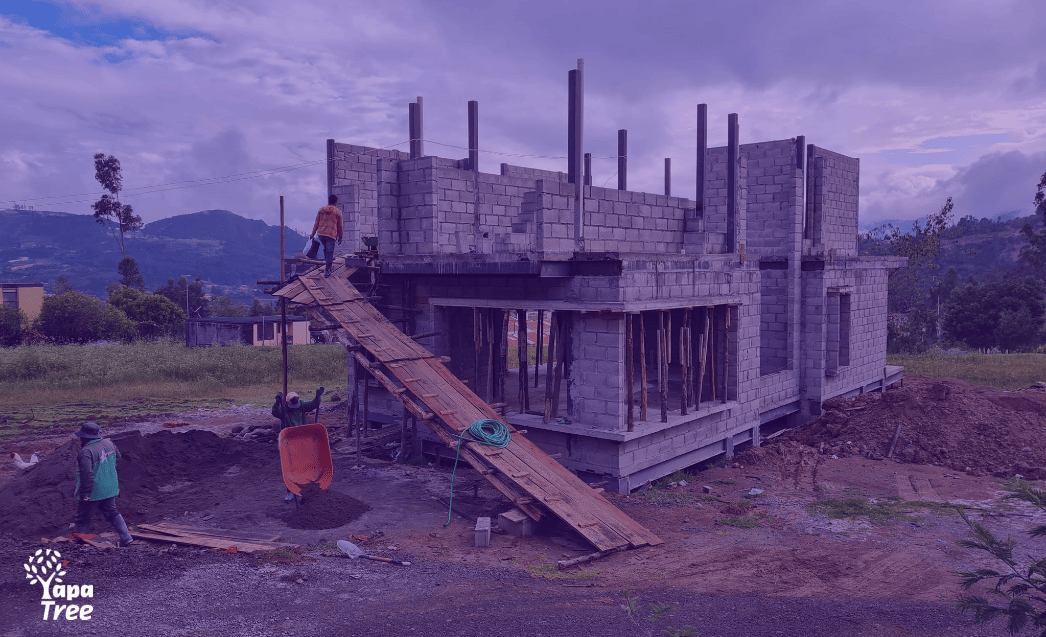
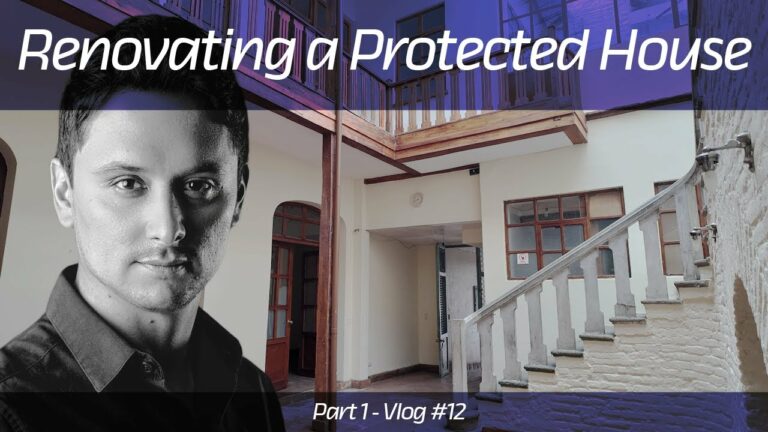
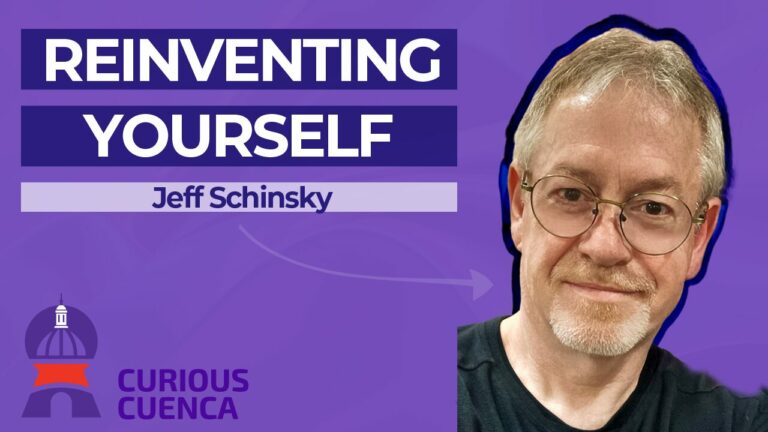
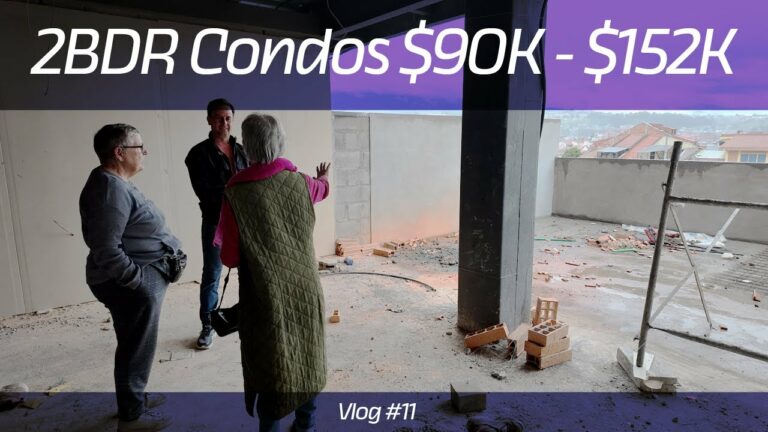
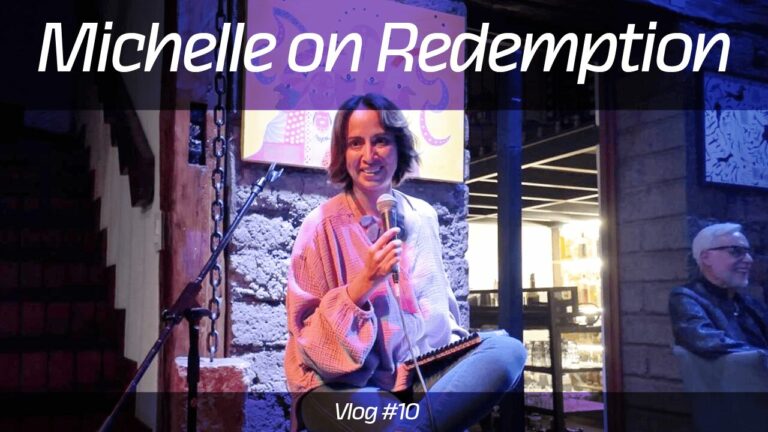
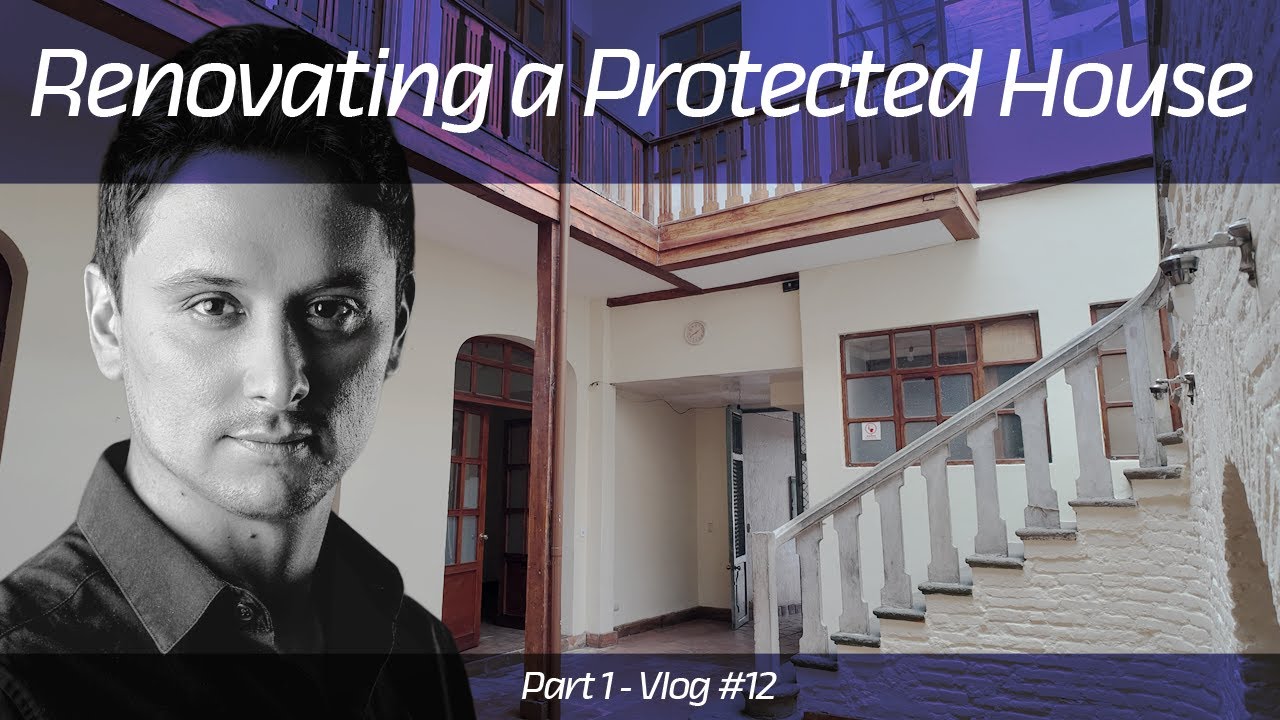
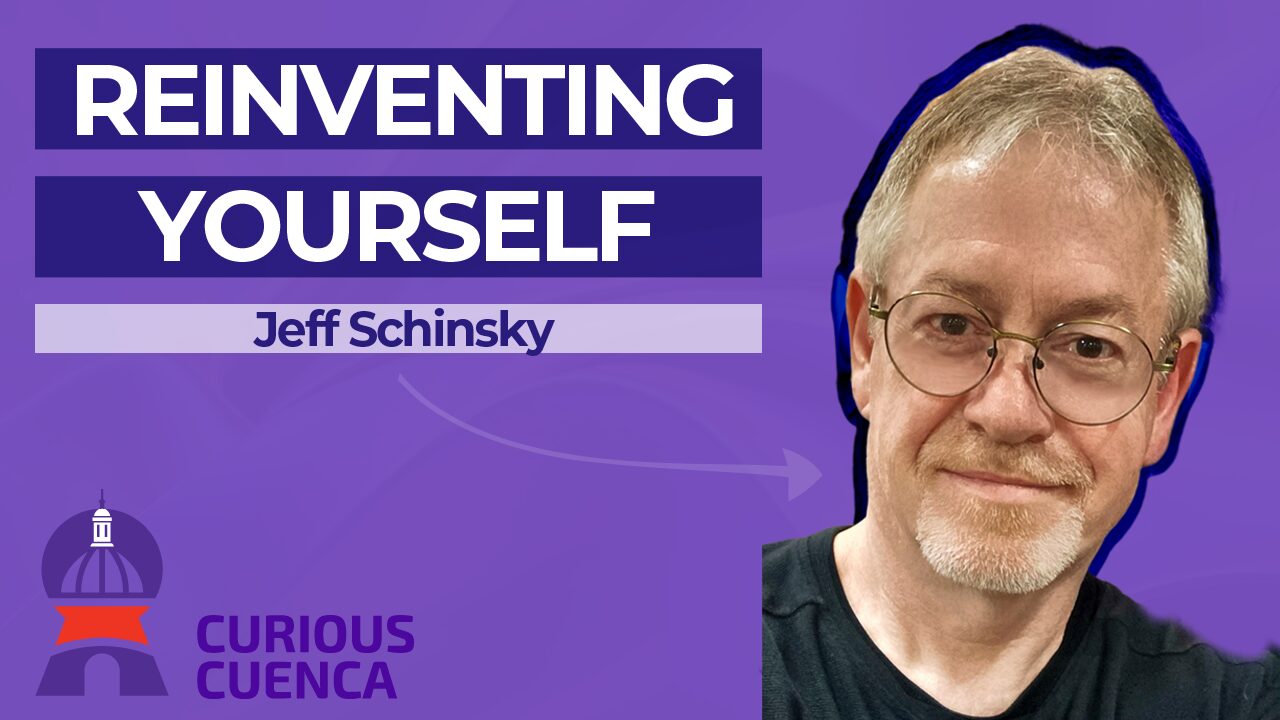
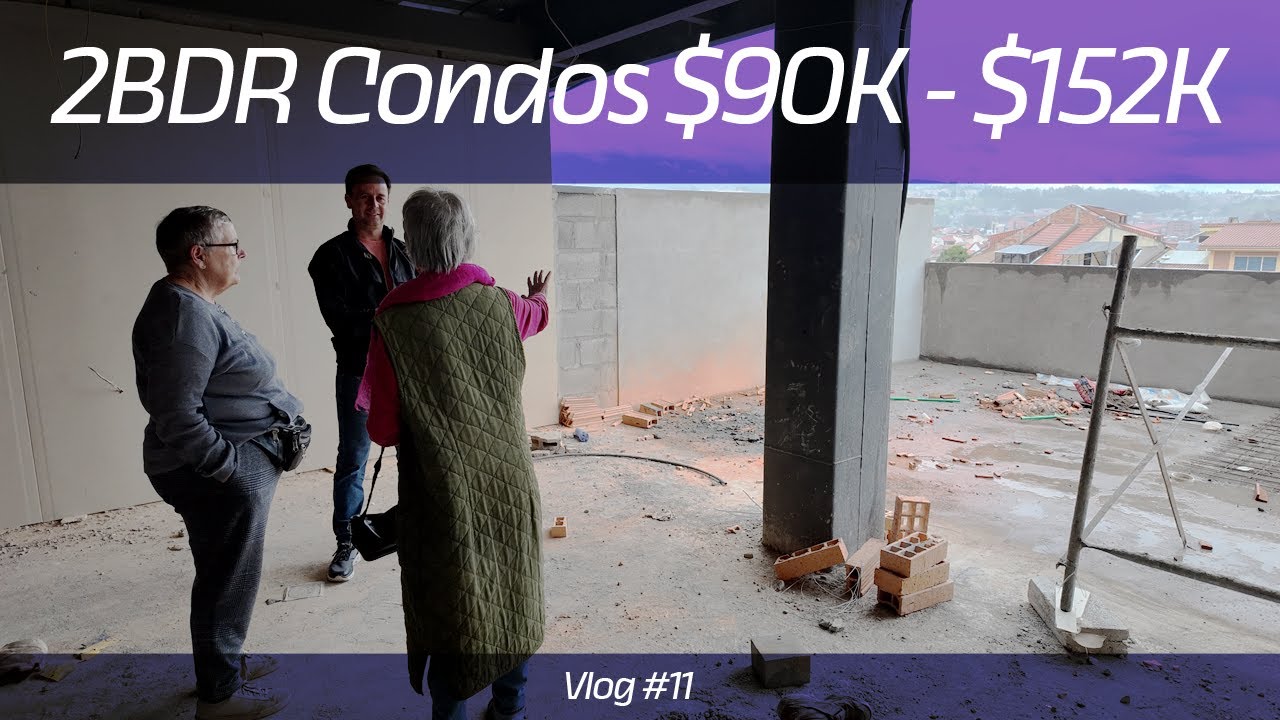
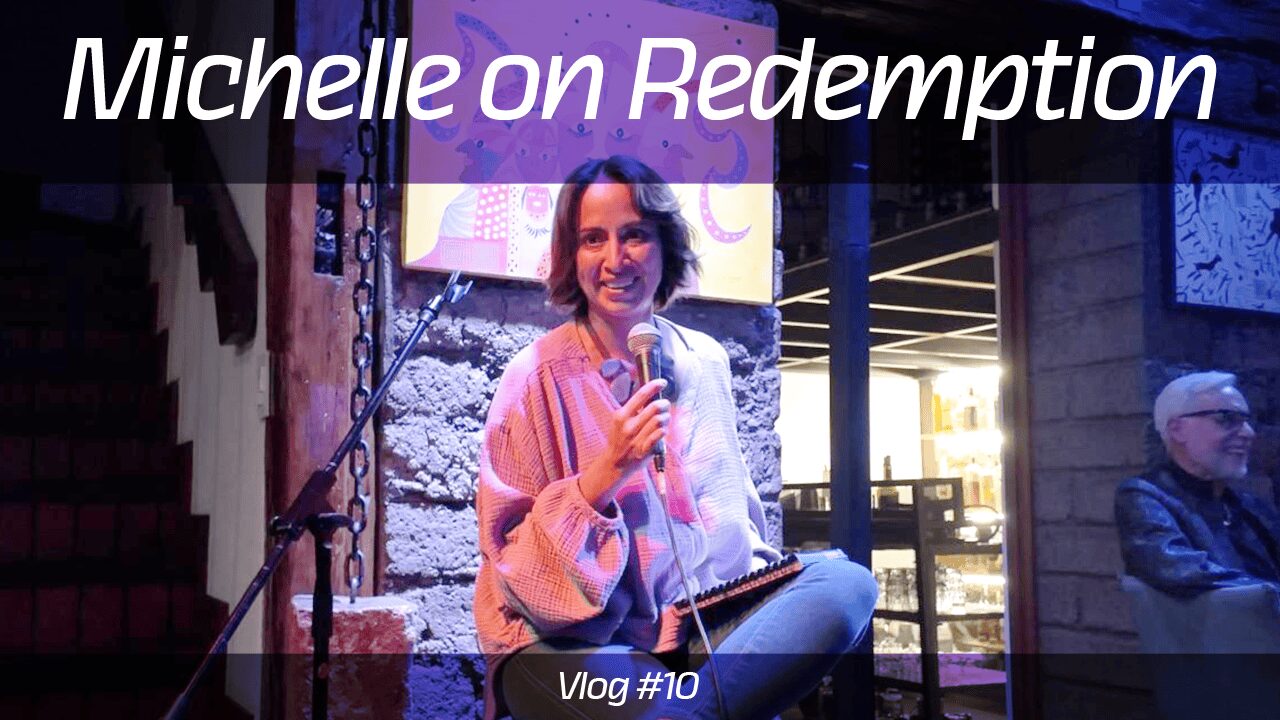
2 Responses
I have been reading a lot of things about this strike and the responses of people for eg: cant have the holiday we planned , cant shop for what we want etc etc. basically complaints from people with money to spend. for gas, cars etc. Has anyone thought of the polluted water from gold or other mining while they are driving the roads of the beautiful lands here where there is no treatment plants to cleanse the water for drinking or for growing the produce you will eat , hopefully non toxic? the land expropriation ? the government bailouts to banks (apparently 1.5 billion under Lenin maybe 10 billion under Corea) yet no relief for those that had loans for vehicles to transport their produce to markets, for their land, for their homes ( if you call it a home without running municipally cleaned water or municipal sewage and waste removal.) You may not have noticed but the interest rates here are pretty high (16% or so) and they are not high because of the poor folks but because of the wealthier ones that run off with th money. There are fotos of people , in this case a nun, walking with luggage. Most of the time I see nuns walking …not being in cars. And education for the kids. can they all afford private health care, like most of the ecorefugees coming here or those taking advantage of the low to non existent property tax to build their 1/2 milliion or more, homes and work from home on the net. They are suffering and by strinking they are also protecting the rights of the “usefull idiots” as noted in the communist manifesto.
Thank you for this very informative article. I could not find an in-depth explanation of why the protests were occurring. This really covered everything in a very informative and careful way. I think as a future expat, this reminded me that we aren’t woven into the fiber and history of the country we choose unless we were born there. This is their country. Support them for wanting to eat, work, and stay out of poverty. These are basic human rights and I would do the same if I had to feed my family.